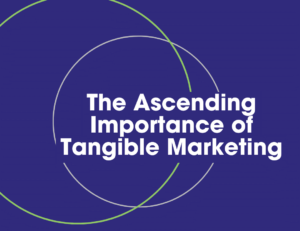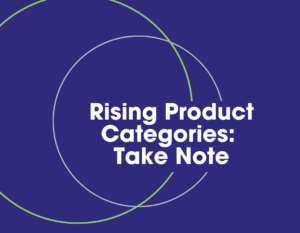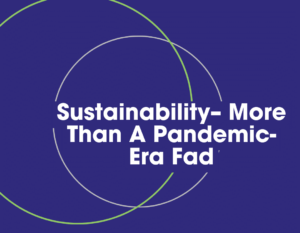atk work / Shutterstock.com
The end of 2020, and all the many challenges associated with the beginning of this decade, couldn’t have come fast enough. For most industries, and perhaps for the promotional products industry especially, January 2021 looked like a starting line. While the challenges and dangers of the pandemic were far from over, professionals were looking forward to Q1 with bated breath and hopes of brighter months ahead.
To some degree, those hopes were realized; the beginning of 2021 brought with it a tone of optimism that continued throughout the year. By Q2, 50 percent of distributors responding to a PPAI Research survey reported sales up by at least 20 percent compared to the same period in 2020. Confidence within the industry followed, with 42.3 percent of distributor survey respondents reporting a higher level of confidence during Q2.
The remainder of the year saw a non-linear rise, full of challenges and setbacks, but the promotional products industry has experienced a positive increase over the past 12 months. And if distributors looked forward to 2021 as a starting line, 2022 seems to be off to the races.
The rollout of the vaccine has encouraged a return to meetings, conferences, corporate and leisurely travel. Recovered hiring budgets have companies vying for talented professionals, each of whom will need the proper promotional product welcome gift. Schools are back in session, new-to-market vendors are on the corporate scene, and the need for thoughtful, useful, branded promotional products is back—dare we say—in full force.
And while there’s every reason to believe in a return to 2019 numbers, the industry won’t get there with 2019 strategies. Below are three important trends and changes for distributors to consider for 2022.

Almost every COVID-era company was working at a diminished sales volume; reducing budgets across the board was a necessary survival strategy. This led marketing teams to be more selective than ever, and a lot of their energy was necessarily directed toward the virtual sphere which was bearing the brunt of our distanced interactions.
But after many long months, marketers are seeing unmistakable signs of virtual fatigue among their audiences. The digital marketing sphere has maybe never been so crowded. Every company is an ecommerce company, and every consumer is being bombarded with ads from the moment they wake up and log on. In a boomerang effect, the value of physical promotional products is rounding out the all-virtual strategy. Offering employees, clients, attendees and customers products they can own and physically hold is nothing new. But it’s taken on new value after the unprecedented proliferation of virtual interactions, digital engagement and otherwise intangible strategies. The promo industry has new valuable propositions—a connection to have and to hold is a unique offering in the new, almost digital-only world.

The question follows: what do people want to have and hold? Some of the niche product categories that saw intense success throughout the pandemic—PPE, sanitizers, and other health care offerings—are losing their shine. It’s important for distributors to know what’s positioned to take their place.
Apparel and drinkware are traditionally strong contenders that are resuming their lead. According to a trend report, apparel was the first category to surge and continues to see a rapid increase in industry sales. Following its rise are the categories of drinkware, home office products, bags and technology/electronics—each of which have an index reading of over 50, meaning demand is on the rise.
Perhaps more surprising is the ascendance of food gifts as a popular strategy. Individually wrapped and branded treats and small batch snacks have been a distinctly winning strategy. Soothing our latent anxieties around COVID-era grocery shopping, or just tapping into the common comfort we all feel around delicious food, edible gifts and branded food offerings are expected to continue to be strong strategies as we move into 2022.

Of the many major COVID-era changes, the heightened sense of environmental responsibility was particularly welcome. Seemingly overnight, consumers internalized the positive signs of environmental reprieve that came from our reduction of activity and began demanding companies work harder to reduce their ecological footprint. And incredibly quickly, suppliers listened to the market and responded accordingly. Never before has there been such a range of sustainable products, offered at affordable rates, and made at such high quality.
To amplify and extend supplier progress in the direction of sustainability, distributors have a responsibility to consider the entire supply chain. Setting standards for fair labor and sourcing practices among suppliers and manufacturers and working collaboratively across the supply chain to ensure social compliance and environmental stewardship, is the only way to move the industry forward as a whole.
And while these efforts need to be reflected to clients and consumers, who keep a watchful eye on environmental progress, there’s a fine line between transparency and greenwashing in the marketing space. The promotional products industry, as a whole, is set back when claims of environmental progress are over inflated or used solely as a marketing ploy. The sector stands at a crossroads, with an incredible opportunity to transform some of the historical perceptions around promotional products. But progress is made in that direction only if we collectively ensure that powerful words like “eco,” “green” and “sustainable,” are used only when the right intention, substance and actions stand behind them, and when the true pursuit is aimed earnestly at improved environmental stewardship rather than boosted sales.
In summary, the promotional products industry will begin the year in a state most distributors were hoping for. There is, in some form, a return to normal and it’s one in which promotional products play an important role. By understanding the importance of gifts in a virtual world, focusing on the in-demand product categories, forecasting inventory among changing demand and working toward improved sustainability metrics, distributors will be in an ideal position to return to full strength in 2022.
–––––––––––––––––––––––––––––––––––––––––––––––––––––––––––––––––––––––––

Tara Milburn is founder and CEO of Ethical Swag, a sustainable branding company and certified B-Corporation located in Sydney, Nova Scotia. Ethical Swag has been audited to the highest global standard for sustainability. Reach Milburn at tara@ethicalswag.com


